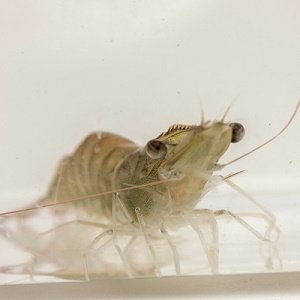
Soybean meal (SBM) is a common protein source in tilapia feed, but it is not the only option. This study investigates sunflower meal (SM) and fermented sunflower meal (FSM) as potential replacements for SBM in tilapia diets.
A study conducted by scientists from Guangdong Ocean University (China) and Tongwei Agricultural Development Co. Ltd. explored the effects of substituting soybean meal (SBM) with sunflower meal (SM) or fermented sunflower meal (FSM) in tilapia feed. The fish were fed diets containing varying levels of SM or FSM (0%, 20%, 40%, 60%, 80%, and 100% replacement) for 9 weeks.
Why consider alternatives to soybean meal?
The use of soybean meal in aquaculture species diets presents several challenges:
- Resource competition: Soybeans are a major food source for both humans and livestock, leading to competition.
- Cost factor: Soybean meal (SBM), a byproduct of soybean processing, is becoming increasingly expensive.
- Nutritional considerations: While SBM provides proteins, it has limitations such as low sulfur amino acids and the presence of anti-nutritional factors.
Sunflower meal (SM): a promising alternative
Sunflower meal (SM) emerges as a potential solution due to several advantages:
- Cost-effective: SM is generally cheaper than SBM and has a stable supply.
- Nutritional value: SM has a high protein content (29-45%) and a good balance of most amino acids.
- Reduced anti-nutritional factors: Compared to SBM, SM has fewer anti-nutritional factors, except for tannin and phytic acid.
- Balanced amino acids: SM offers a good balance of essential amino acids for fish growth, except those containing sulfur.
Research suggests that SM can be effectively included in fish diets at low levels (5.2-21.58%) without hindering growth. However, higher levels can be problematic due to the presence of fiber and lignin. To address this, fermentation with bacteria and enzymes offers a promising solution.
Can sunflower meals replace soybean meal?
This research examined the effects of replacing SBM with SM or FSM in tilapia diets. Here is what they found:
- Limited SM substitution: Replacing more than 40% of SBM with SM negatively affected tilapia growth and gut health. High levels of SM can irritate the gut and hinder nutrient absorption.
- Fermentation shows promise: Complete replacement of SBM with FSM did not harm tilapia growth or health. Fermentation can improve the digestibility and suitability of sunflower meal for tilapia.
A deeper look: gut health and gene expression
The study also explored the effects of SBM replacement on tilapia gut health and gene expression:
- SM and gut inflammation: High levels of SM substitution triggered inflammation in the tilapia gut, which could explain the negative effects on growth.
- FSM and gut balance: FSM replacement at some levels reduced pro-inflammatory genes, suggesting a potential benefit for gut health. However, high levels of FSM also negatively affected some gut health markers.
Conclusion
“Our data confirm that replacing more than 40% of SBM with SM induces gut inflammation, damages gut health, and decreases growth performance, while replacing SBM with FSM did not negatively affect tilapia growth and health,” the scientists conclude, not recommending FSM replacement for SBM levels above 80%.
Future research may explore:
Stay Always Informed
Join our communities to instantly receive the most important news, reports, and analysis from the aquaculture industry.
- Optimization of FSM levels: Identifying the ideal FSM replacement level to balance cost-effectiveness with fish health.
- Alternative protein sources: Investigating other sustainable protein sources suitable for tilapia aquaculture.
By exploring alternative protein sources like FSM, we can contribute to a more sustainable and profitable tilapia aquaculture industry.
The study was funded by the National Natural Science Foundation of China; The Special Project in Key Fields of Universities in Guangdong Province; the Program for Scientific Research Startup Funds of Guangdong Ocean University; and the Foundation of Tongwei Co., Ltd.
Contact
Haifeng Mi
Tongwei Agricultural Development Co. Ltd.
Chengdu, 610093, China
Email: mihaifengtw@163.com
Reference (open access)
Huang, H., Liu, Y., Zhou, H., Lin, X., Wang, X., Jiang, W., Zhang, L., Mi, H., & Deng, J. (2024). Effects of Replacing Soybean Meal with Sunflower Meal or Fermented Sunflower Meal on the Growth Performance, Intestinal Microbiota, and Intestinal Health of Tilapia (GIFT, Oreochromis niloticus). Aquaculture Nutrition, 2024(1), 9366952. https://doi.org/10.1155/2024/9366952
Editor at the digital magazine AquaHoy. He holds a degree in Aquaculture Biology from the National University of Santa (UNS) and a Master’s degree in Science and Innovation Management from the Polytechnic University of Valencia, with postgraduate diplomas in Business Innovation and Innovation Management. He possesses extensive experience in the aquaculture and fisheries sector, having led the Fisheries Innovation Unit of the National Program for Innovation in Fisheries and Aquaculture (PNIPA). He has served as a senior consultant in technology watch, an innovation project formulator and advisor, and a lecturer at UNS. He is a member of the Peruvian College of Biologists and was recognized by the World Aquaculture Society (WAS) in 2016 for his contribution to aquaculture.







